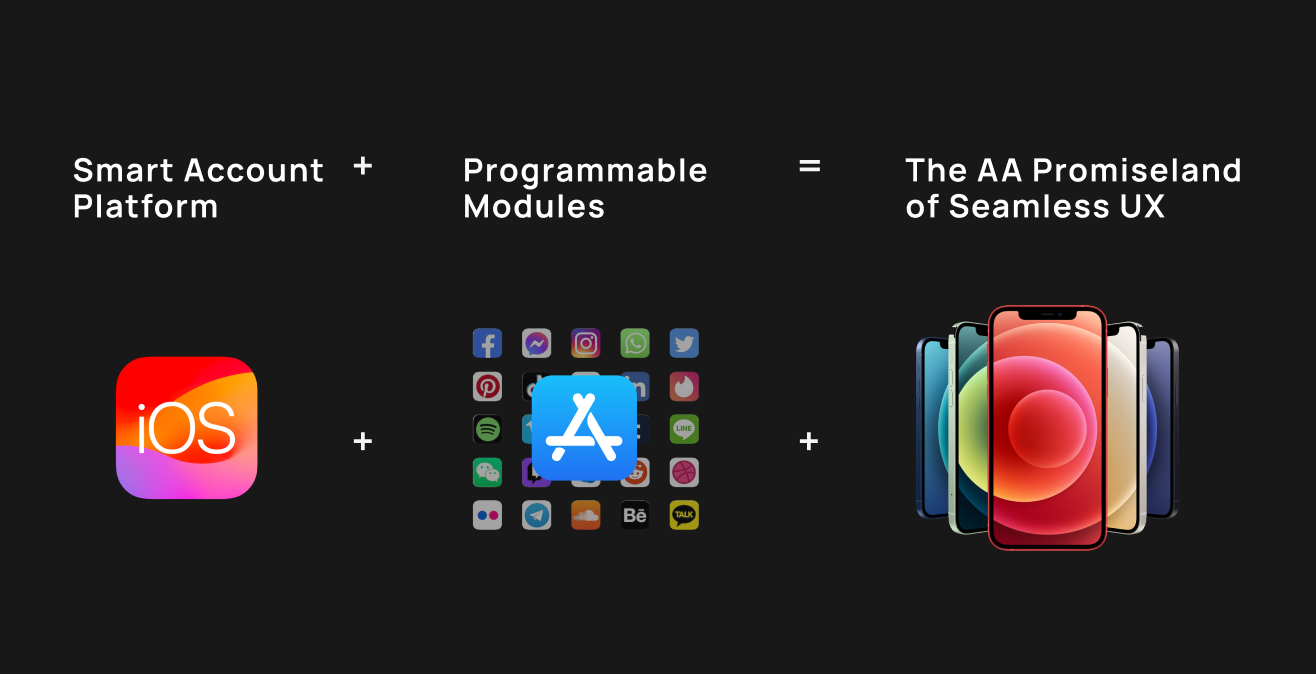-
Notifications
You must be signed in to change notification settings - Fork 5
Home

- Contents
- What Is Nexus?
- Purpose of Nexus
- Problems Nexus Solves
- Design Principles of Nexus
- How Nexus Achieves Its Goals
- Benefits and Use Cases
- Looking Forward
Nexus is a smart contract suite developed by Biconomy to enhance blockchain transactions through a modular smart account architecture. It fully supports ERC-7579, enabling the creation of interoperable and customizable smart contract accounts.
Note
Nexus utilizes a modular architecture for easy feature integration and customization.
Nexus aims to enhance the Web3 user experience (UX) by making blockchain interactions simpler, more accessible, and user-friendly. It provides a flexible and modular framework for executing transactions within smart accounts, allowing users to interact seamlessly with decentralized applications (dApps) without the complexities traditionally associated with blockchain technology.
[!TIP] Nexus simplifies blockchain interactions by abstracting away complex details, allowing users to focus on their desired actions without needing to understand the underlying technicalities.
Nexus addresses several key issues:
- Fragmentation and Interoperability: Provides a standardized framework for seamless platform and application integration.
- User Experience: Simplifies blockchain interactions, making them more intuitive.
- Vendor Lock-In: Allows easy transitions between account providers, reducing dependencies.
Important
Nexus is compliant with ERC-7579, ERC-4337, and ERC-7484, ensuring broad compatibility, modular security attestations, and interoperability.
Nexus operates on several core principles:
- Modular Architecture: Allows easy integration and modification of features.
- Account Abstraction: Utilizes ERC-4337 for simplified user interactions through smart contracts.
- Standards Compliance: Adheres to standards like ERC-7579 and ERC-7201.
- Smart Contracts and Solidity: Developed using Solidity for robust and secure operations.
Nexus leverages advanced technologies and standards:
- Modular Architecture: Customizable functionalities through modules.
- Account Abstraction: Smart contracts as user accounts for programmable execution.
- Standards Compliance: Ensures broad compatibility.
- Smart Contracts: Secure and efficient management using Solidity.

Caution
Always verify the security of external modules integrated into the Nexus smart account to avoid potential vulnerabilities.
Warning
Nexus supports delegate calls for advanced functionality. However, these come with inherent risks. To mitigate these risks, Nexus enforces strict access controls and thorough security audits to ensure safe execution of delegate calls.
Nexus significantly improves the user experience by leveraging Account Abstraction (AA) and programmable modules. Traditional Ethereum accounts (Externally Owned Accounts - EOAs) require users to sign every transaction, which can be cumbersome and disruptive. With Nexus, smart accounts can automate these interactions, allowing for seamless and uninterrupted user experiences.
Examples:
- Gaming: Imagine playing a blockchain-based game without constant transaction approval pop-ups. Nexus enables this by allowing users to open a session for a specific duration where all transactions are pre-approved.
- Decentralized Finance (DeFi): Users can trade on decentralized exchanges (DEXs) like Perpetual Protocol without having to approve each trade manually. Nexus can automate these interactions, providing a smoother trading experience.
Nexus's modular architecture enhances security by allowing the integration of custom validation and execution modules. These modules can be tailored to meet specific security requirements, ensuring that only authorized transactions are executed. Additionally, users can implement Web2 solutions such as OAuth or Passkey, or define their own security measures like multi-signature (multisig) setups or quantum-proof mechanisms.
Important
At all times, a validation module should be present in the Nexus smart account to maintain security and integrity.
Warning
While modular smart accounts are inherently secure, the security is delegated to the integrated modules. It is crucial to carefully select and verify the modules you use to avoid potential security risks.
Nexus supports programmable interactions through smart contracts, enabling advanced use cases such as:
- Recurring Payments: Automate recurring payments without needing manual approval for each transaction.
- Subscription Services: Implement subscription-based services where payments are automated and managed through smart contracts.
- Automated Workflows: Enable complex workflows that involve multiple transactions, all managed and executed through programmable modules.
By adhering to ERC-7579, Nexus ensures interoperability across different platforms and applications. This standardization reduces fragmentation and allows for seamless integration with other blockchain services.
Note
ERC-7579 ensures that different wallet UIs can work with the same smart account, providing a consistent user experience and reducing vendor lock-in.

Nexus's design is future-proof and scalable, making it suitable for a wide range of applications. As blockchain technology evolves, Nexus can adapt to new standards and requirements, ensuring long-term viability and flexibility.
Nexus is a groundbreaking solution that enhances blockchain interactions through its modular architecture and support for Account Abstraction. By improving user experience, enhancing security, and providing flexible and programmable interactions, Nexus is poised to become a central component in the future of Web3.
Tip
Regularly check for updates and best practices in the official Nexus documentation to ensure ongoing security and performance optimization.
For more information and to explore the full potential of Nexus, refer to the Nexus GitHub repository.
- Home
- Nexus Architecture
- Access Control
- Execution Framework
- Modules
- Factories
- Migration Guide
- Testing Documentation
- Configuration and Security
- Libraries
- FAQ
- Biconomy Solidity Style Guide
- Security Considerations
- Team
-
Contracts
- Nexus
- Base
- Common
- Factory
- AbstractNexusFactory
- BiconomyMetaFactory
- K1ValidatorFactory
- ModuleWhitelistFactory
- NexusAccountFactory
- Modules
- Utils